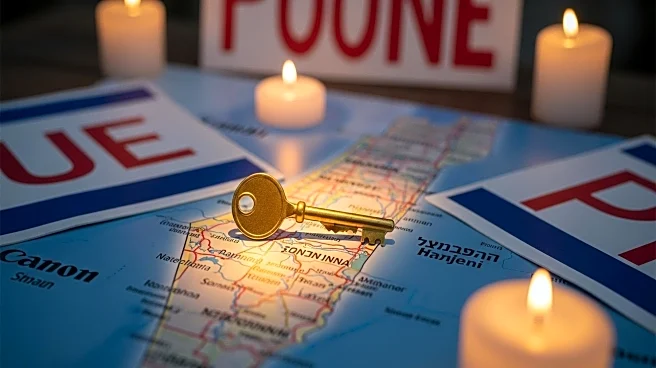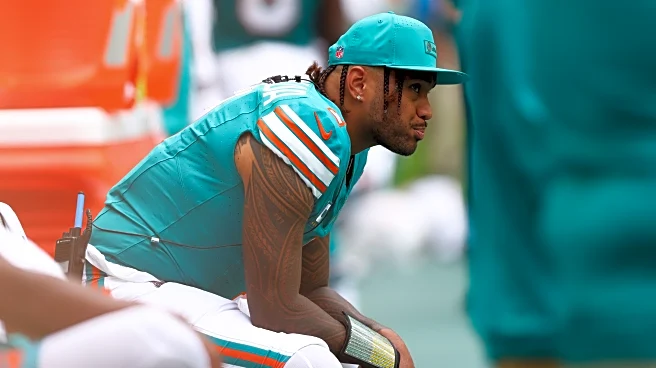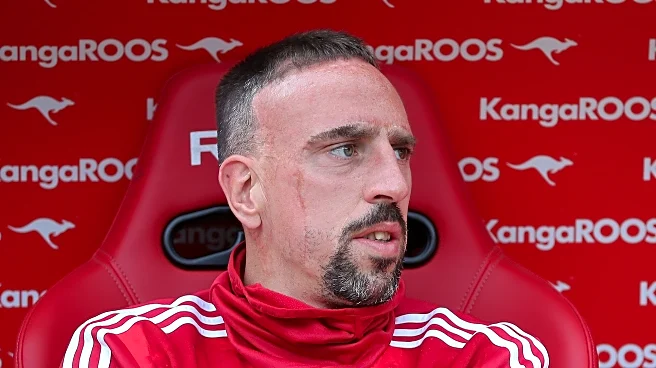What is the story about?
What's Happening?
Hundreds of thousands of protesters gathered in Tel Aviv and other major cities across Israel, demanding the government secure the release of 50 hostages still held in Gaza. The demonstrations, which organizers claim involved over one million participants, marked one of the largest coordinated protests since the Gaza conflict began nearly two years ago. Protesters blocked major roads, closed businesses, and staged rallies, expressing frustration with the government's handling of the hostage situation. A video of captive Matan Zangauker was released during the protests, intensifying calls for action. Family members of the hostages criticized the government's approach and called for an 'emergency break' until the hostages are released.
Why It's Important?
The protests highlight significant public pressure on the Israeli government to resolve the hostage crisis, which has been a contentious issue since the conflict began. The widespread participation underscores the urgency felt by many Israelis, who support a ceasefire deal to secure the hostages' release. The demonstrations also reflect broader dissatisfaction with the government's handling of the war, potentially influencing future political decisions and negotiations. The situation poses a challenge for Prime Minister Benjamin Netanyahu, who faces criticism from both the public and political opponents, impacting his administration's credibility and stability.
What's Next?
The Israeli military plans to expand operations in Gaza, which could further endanger the hostages. The Hostages and Missing Families Forum announced plans to set up a protest encampment on the Gaza border to maintain pressure on the government. The ongoing protests may lead to increased political and social tensions, with potential implications for future negotiations and government policy. The situation remains fluid, with stakeholders closely monitoring developments and potential responses from international actors.
Beyond the Headlines
The protests reveal deeper societal divisions and the emotional toll of the prolonged conflict on Israeli families. The government's response to the demonstrations could affect its relationship with civil society and influence public trust in political institutions. The ethical implications of prioritizing military objectives over humanitarian concerns are likely to be debated, potentially shaping future policy decisions and international perceptions of Israel's actions.















